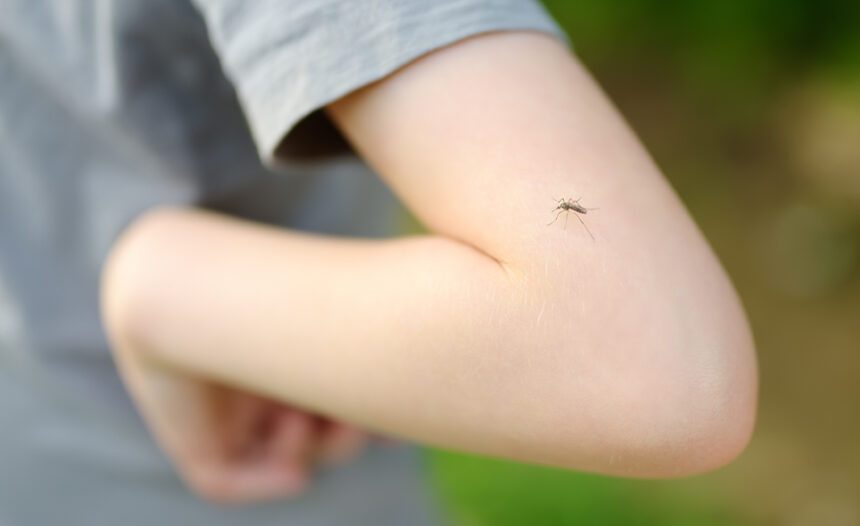
As summer temperatures rise, so does the risk of mosquito-borne illnesses, one of the most concerning being West Nile Virus (WNV). With recent reports confirming cases of WNV in Atlanta, Georgia, it’s essential for parents to understand what this virus is, recognize its symptoms, and know how to protect their children from it.
What is West Nile Virus?
West Nile Virus is a virus primarily transmitted to humans through the bite of an infected mosquito. While it was first identified in Africa, it has spread to various parts of the world, including the United States. Mosquitoes become infected when they feed on birds that carry the virus, and then they can transmit it to humans and other animals.
While most people infected with WNV do not show symptoms, the virus can lead to serious health issues, especially in vulnerable populations like children, the elderly, and those with weakened immune systems.
Symptoms of West Nile Virus in Children
WNV can manifest in different ways, ranging from mild to severe. It’s important for parents to be aware of the potential symptoms:
1. Asymptomatic (No Symptoms):
About 70-80% of people infected with WNV experience no symptoms at all.
2. Mild Symptoms (West Nile Fever):
In cases where symptoms do appear, they are usually mild and can include:
– Fever
– Headache
– Fatigue
– Body aches
– Skin rash (on the trunk of the body)
– Swollen lymph nodes
These symptoms may appear 3 to 14 days after being bitten by an infected mosquito.
3. Severe Symptoms (Neuroinvasive Disease): Although rare, WNV can lead to serious neurological illnesses, such as encephalitis (inflammation of the brain) or meningitis (inflammation of the membranes surrounding the brain and spinal cord). Symptoms of severe WNV include:
– High fever
– Severe headache
– Stiff neck
– Muscle weakness
– Disorientation or confusion
– Seizures
– Tremors
– Paralysis
– Coma
Children with weakened immune systems or underlying health conditions may be at higher risk for these severe outcomes.
How West Nile Virus Affects Kids
While severe cases of WNV are less common in children than in adults, kids are still susceptible to the virus. Children with weakened immune systems or chronic conditions may be at a higher risk of developing severe symptoms. Even in mild cases, the fever and fatigue can cause discomfort and disrupt daily activities, including school and play.
Parents should monitor their children for any signs of illness, especially after spending time outdoors, and seek medical attention if severe symptoms develop.
Preventative Measures for Parents
Given that WNV is transmitted through mosquito bites, the best way to protect your children is to minimize their exposure to mosquitoes. Here are some effective strategies:
1. Use Insect Repellent: Apply EPA-registered insect repellents that contain ingredients like DEET, picaridin, or oil of lemon eucalyptus. For children, choose products with a lower concentration of DEET (10-30%) and follow the instructions on the label. Avoid applying repellent to children’s hands, eyes, and mouth.
2. Dress Kids Appropriately:
Dress your children in long sleeves, long pants, and socks when they are outside, especially during peak mosquito activity times (dusk and dawn).
3. Eliminate Standing Water:
Mosquitoes breed in standing water. Regularly empty and clean containers like birdbaths, flower pots, and kiddie pools. Ensure that gutters are clean and properly draining to prevent water accumulation.
4. Install Window and Door Screens:
Ensure that your home is well-protected by using screens on windows and doors to keep mosquitoes out. Repair any holes or tears in screens.
5. Limit Outdoor Activities During Peak Mosquito Hours:
Mosquitoes are most active during dawn and dusk. If possible, limit your children’s outdoor activities during these times. If they must be outside, take extra precautions with clothing and repellent.
6. Protect Babies and Toddlers:
For infants under 2 months old, avoid using insect repellent. Instead, use mosquito netting over strollers, carriers, and cribs when outdoors.
7. Encourage Community Awareness: Participate in or support local mosquito control efforts. Encourage your community to take measures to reduce mosquito populations, such as organizing neighborhood clean-ups to eliminate standing water.
When to Seek Medical Help
If your child develops symptoms of WNV, especially after being bitten by a mosquito, contact your healthcare provider. While mild symptoms often resolve on their own, severe symptoms require prompt medical attention. If your child experiences a high fever, severe headache, stiff neck, or any neurological symptoms, seek emergency medical care immediately.
While the presence of West Nile Virus in Atlanta, Georgia, is concerning, proactive measures can significantly reduce the risk of infection. By staying informed, using preventative strategies, and monitoring your children’s health, you can help protect them from this potentially serious illness. Remember, early detection and treatment are key in managing the impact of WNV on your family’s health.
If you need to consult with one of our five Board-Certified Pediatricians, please contact our office at 404-252-4611 or submit an appointment request via our ‘Contact Us’ form on our homepage.
